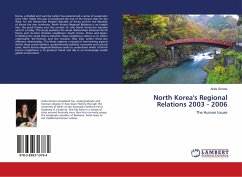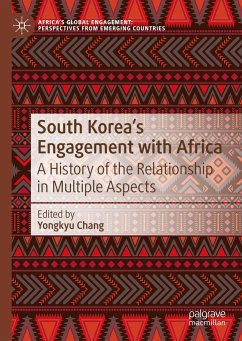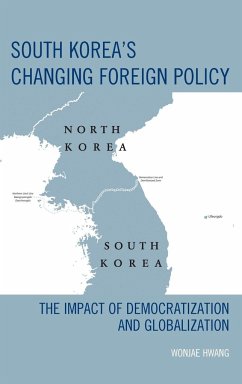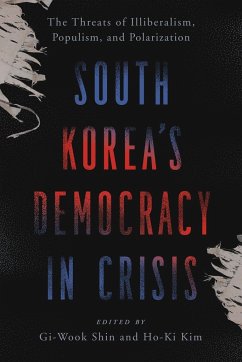
South Korea's Role In Building The East Asian Community
A Middle Power Advancing Regionalism
Versandkostenfrei!
Versandfertig in 6-10 Tagen
45,99 €
inkl. MwSt.

PAYBACK Punkte
23 °P sammeln!
The literature on middle powers suggests that such countries can play important roles in advancing cooperation within several areas, however, it does not always consider applications to regionalism, a process which is usually advanced and led by great powers. In East Asia, the need for regional institutionalization became evident since the Asian Financial Crisis of 1997-98, yet the attempts of China and Japan for regional leadership are often viewed as problematic. Hence, this work puts forwards the notion of South Korea's 'de facto' leadership as a middle power in advancing the processes of r...
The literature on middle powers suggests that such countries can play important roles in advancing cooperation within several areas, however, it does not always consider applications to regionalism, a process which is usually advanced and led by great powers. In East Asia, the need for regional institutionalization became evident since the Asian Financial Crisis of 1997-98, yet the attempts of China and Japan for regional leadership are often viewed as problematic. Hence, this work puts forwards the notion of South Korea's 'de facto' leadership as a middle power in advancing the processes of regional institution and community-building in its own regional setting. In doing so, this book first builds up a multilayered analytical framework to look into South Korea s foreign policy behavior towards the regional processes in East and Northeast Asia. This work falls within the theoretical boundaries of international political economy and international relations, being especially usefulfor those involved in area studies interested in having an improved practical understanding of East Asian regionalism in general, and in South Korea's international positioning more specifically.














